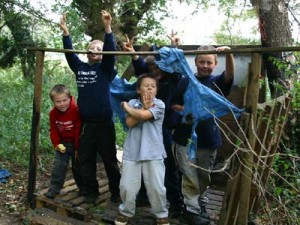Exchanging A’s for Cash Money
 I’m feeling a bit queasy after reading the ABCNews.com story “Some D.C. Students to Be Paid for A’s” from 8/26/08. Here’s an excerpt:
I’m feeling a bit queasy after reading the ABCNews.com story “Some D.C. Students to Be Paid for A’s” from 8/26/08. Here’s an excerpt:
Will middle school students hit the books, show up on time and be on their best behavior if they’re getting paid?
As Washington, D.C. students start back to school this week, that’s the thinking behind a new program just launched in the district. As early as October at 14 of 28 D.C. middle schools, students will get paid to perform as part of a pilot program that rewards kids for good grades, attendance, and behavior.
Kids could rake in up to $100 per month, getting paid every two weeks through the program.
Behind the program is D.C. schools Chancellor Michelle Rhee, who’s getting a lot of press for her new approaches to old problems. I’m all for new approaches, if they happen to be better than the old ones. Here’s the comment I posted on ABCnews:
September 2, 2008 Educational Philosophy & Practice, Elementary School, What I'm Learning 6 Read more >
